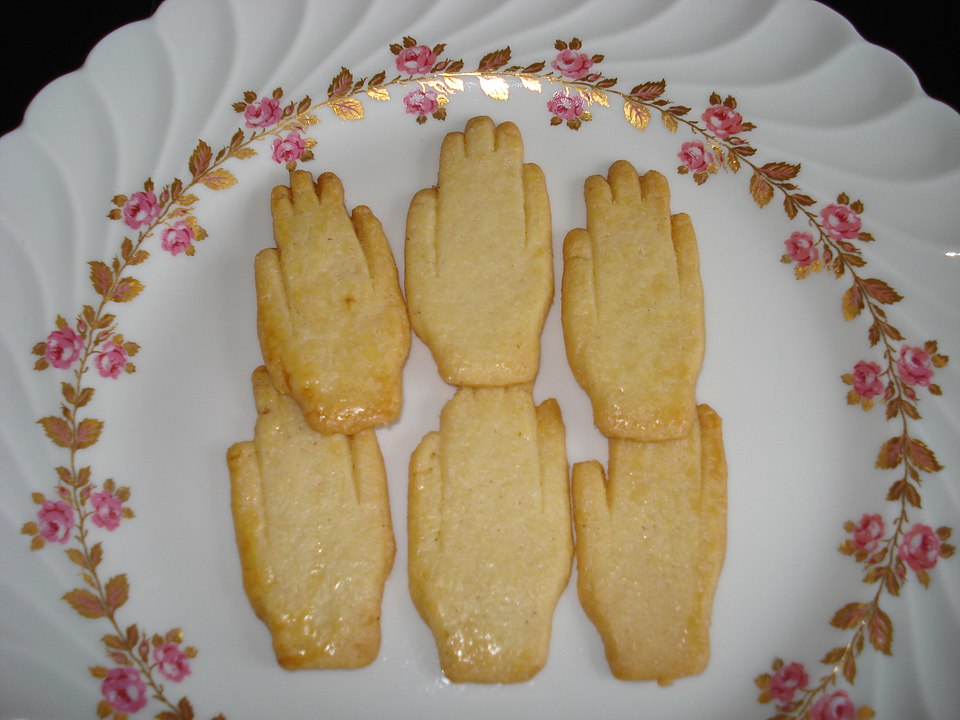Bart De Wever is the president of the Flemish nationalist party N-VA, as well as the mayor of Antwerp, but that doesn’t mean he has no time to take to social media to defend confectionery.
The issue concerns the Antwerps Handjes, or Antwerp Hands, sold in all bakery and souvenir shops in the port city, and consisting of a bite-sized representation in pastry or chocolate of a human hand.
The confectionery traces its origins back to 1934, but only now has it become the target of a campaign on Twitter, accusing it of being a reminder of the horrors perpetrated in the Congo under Belgian rule. In that period, slaves would have their hands – sometimes both hands – amputated for the slightest offence. Women and children were not excused.
The issue has been picked up by the group Africa Archives, and the link made between the pastry and the atrocity. The group posted a tweet earlier this week (warning: contains a shocking image of a double amputee) describing the link as ‘diabolical’.
“Totally unjustified,” responded Bruno Kuylen, director of the trade union for makers of bread, pastry, chocolate and ice cream in De Morgen.
“Long before the A of Antwerp functioned as a logo and signboard for the city, the hand was used as a symbol by both the province and the city itself. A direct reference to the myth of how Antwerp originated.”
Related News
As far as Antwerp’s origin is concerned, the story goes as follows.
“The villain and giant Druoon Antigoon took a heavy toll on the skippers using the river, and whoever refused had their hand cut off. As everyone knows, the giant was outwitted by the Roman Silvius Brabo. He in turn cut off Antigoon's hand and threw it into the Scheldt. According to legend, ‘hand werpen’ (hand throwing) became ‘Antwerpen,’ and the hand became the symbol of hospitality and friendship.”
The confectionery came about as the result of a contest held in 1934 by the Royal Association of Master Patissiers, for something that could represent the city. Six chose to turn to the hand, and the prize went to Jos Hakker.
Hakker, De Wever posted on Facebook, was Jewish, from a Dutch background.
“He narrowly escaped the horrors of the Holocaust. Last year he received a memorial plaque in Provinciestraat. Or how the victim of one genocide is now linked to another genocide. The step from woke to witless is quickly taken. This shameful fabrication couldn't be further from the truth.”
Alan Hope
The Brussels Times

